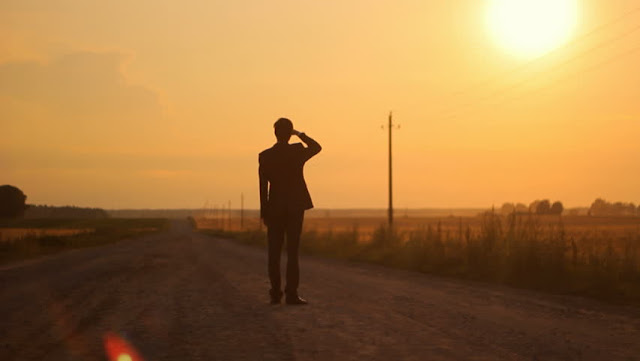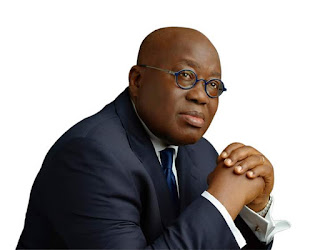SOCIAL MEDIA: Has it succeeded or failed to enhance Africa’s development?
Over the years, the African continent has been prone to lots of changes. We can all understand that these changes have had substantial effects on us as a continent. One of these changes is none other than technology. Technology has spread like wildfire across the African continent. The use of mobile gadgets and others have made things quite easier, no doubt. Particularly social media, which is our item under the spotlight today. With all the enormous amount of information social media passes around, has it succeeded or failed to enhance Africa’s development?
Development in Africa in all aspects, is moving at a slower pace. Government leaders often try to justify this by simply stating that there are not enough foreign aids. However, people are beginning to realize how dissipated the Governments have been to access of foreign funds. In other words, their eyes are open now. But how can others hear about this? Most people are able to voice and share their views on the demoralized actions of government officials on social media. In all, corrupt government activities, political scandals are all being exposed in a click of a button.
In 2016, During Ghana’s general elections, numerous pictures were circulating on social media revealing roads which were in deprived states but have already been funded. ‘the public was made aware of the distress the Government in power put the citizens through’ This somehow led to the changes in ruling political parties that year. A similar event happened during the July 2014 floods in Cȏté D’Ivoire and the outbreak of Ebola in West Africa. According to social media analyst Sarah Clavel, who worked for the African Innovation Foundation in Abidjan, she explained how the #CIVsocial twitter hashtag used during the floods really helped saved lives.
‘ʻAll of these were done through social media- groups emerged and we were able to locate which areas needed things the most. There was a horizontal flow of information. Using the #CIVsocial hashtag we could also aggregate all the pictures from the floods and make an active flood map and areas to avoid, using open street map. We were able to coordinate efforts’’.
Therefore, there is an undeniable connection between recent occurrences in the world and the social media. It has created a platform for people to voice their views so they can be heard on global stage. Others create productive online communities as a place where they can humanize, cryptic and conceptualize phenomena. The 2011 Nigerian elections, the worldwide Kony movement against Kony, the Ugandan warlord and others are a few developments that have driven the debate about the ability of social media in bringing about social, economic and political change in the African continent. ‘the ease of use, speed and reach of social media has led to a change in the manner of societal disclosure in society and has become a trend setter for topics ranging from environment and politics to technology and the entertainment industry’’. – Asur and Huberman (2010).
In 2016, During Ghana’s general elections, numerous pictures were circulating on social media revealing roads which were in deprived states but have already been funded. ‘the public was made aware of the distress the Government in power put the citizens through’ This somehow led to the changes in ruling political parties that year. A similar event happened during the July 2014 floods in Cȏté D’Ivoire and the outbreak of Ebola in West Africa. According to social media analyst Sarah Clavel, who worked for the African Innovation Foundation in Abidjan, she explained how the #CIVsocial twitter hashtag used during the floods really helped saved lives.
‘ʻAll of these were done through social media- groups emerged and we were able to locate which areas needed things the most. There was a horizontal flow of information. Using the #CIVsocial hashtag we could also aggregate all the pictures from the floods and make an active flood map and areas to avoid, using open street map. We were able to coordinate efforts’’.
Therefore, there is an undeniable connection between recent occurrences in the world and the social media. It has created a platform for people to voice their views so they can be heard on global stage. Others create productive online communities as a place where they can humanize, cryptic and conceptualize phenomena. The 2011 Nigerian elections, the worldwide Kony movement against Kony, the Ugandan warlord and others are a few developments that have driven the debate about the ability of social media in bringing about social, economic and political change in the African continent. ‘the ease of use, speed and reach of social media has led to a change in the manner of societal disclosure in society and has become a trend setter for topics ranging from environment and politics to technology and the entertainment industry’’. – Asur and Huberman (2010).
In contrast , there have been critiques on the use of social media and the fact that there is a negative side to everything. Some people are raising concerns that social media is actually damaging real life thinking. Particularly when it comes to social behavior, education and academic performance. Africa’s Development has always included education, the aspect of development that requires quite a long time of preparation. Reynold Junco (2012) in his article named ‘too much face and not enough books- the relationship between the multiples of indices of Facebook use and academic performance’, found that time spent on Facebook is negatively related to overall GPA, and the time spent on Facebook is slightly related to time spent on studying. This means that as more time is spent on Facebook, the GPA of students fall and the time spent on Facebook could be used for studying. There have been numerous concerns raised over the years about the use of social media as a place where awful, offensive and fulsome images or videos are being shared.
Human Rights Abuse, Defamatory Information, Invasion of Privacy and the likes are undoubtedly very unhealthy and dangerous. But what’s more dangerous is the addiction that comes with it. For example, some observations made have shown that people tend to lose their jobs as they are deemed less productive due to social media addiction even at their workplaces.
Human Rights Abuse, Defamatory Information, Invasion of Privacy and the likes are undoubtedly very unhealthy and dangerous. But what’s more dangerous is the addiction that comes with it. For example, some observations made have shown that people tend to lose their jobs as they are deemed less productive due to social media addiction even at their workplaces.
ʻʻ As Africans, have we really taken time to assess the social-economic, political and ecological impacts of social media to us? Are there no negative impacts? Sustainable Development and its goals can only be achieved if we use social media in a manner that will not cause damage to our economies, peaceful existence and social harmony’’ – Dr. Yahya Khamis Msangi. So now what’s your take on this issue? Has social media succeeded or failed in enhancing Africa’s development?
Article written by:
Afrasah Hammond
(Staff-Writer, Articles-GH)



Comments
Post a Comment